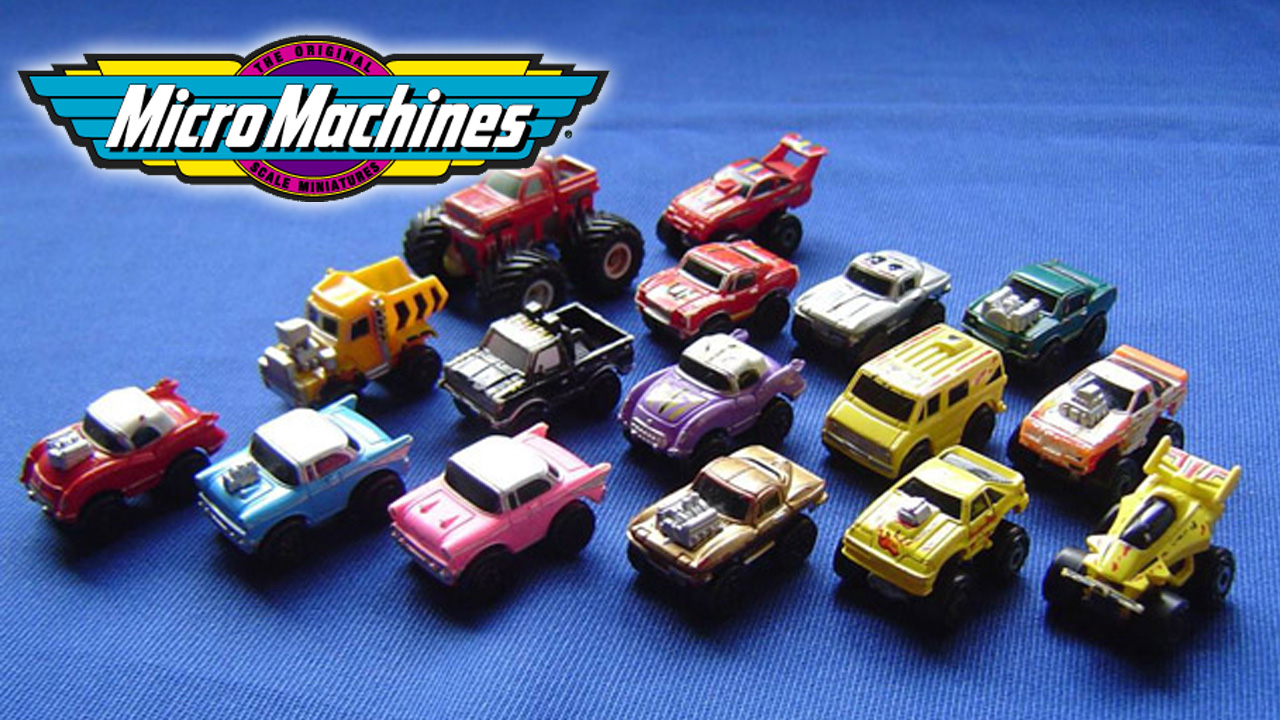Image transcript:
Calvin (from Calvin & Hobbes) sitting at a lemonade stand, smiling, with a sign that reads, “Trains and micromobility are inevitably the future of urban transportation, whether society wants it or not. CHANGE MY MIND.”
I like how you assume that society will choose to have a future over self-immolation.
Yeah that’s a bold assumption. My bet is on “it’s going to get progressively worse and never better”. I have yet to be proven wrong. Since the day I was born everything’s been enshittening with only inconsequential cosmetic improvements (lol technology, what a joke).
My plan is to work from home, be completely self sufficient with minimal transport and do all I can do online.
So your definition of self sufficient is to be 100% reliant on Internet infrastructure?
Eh, I guess? Partially. I have stores nearby that I can go walking, and WFH so yeah internet reliant, but I’m a programmer so that’s already a given anyway.
I did say self sufficient with minimal transport though.
If nothing else, car dependency is fiscally unsustainable. We might go kicking and screaming towards the solution, but eventually people will have no choice but to abandon the financial suicide that is making your city car dependent.
True, and I wish my city would realize it harder, sooner. On the other hand, I just read an article the other day that claims that the collapse of civilization has begun. A lot of societies throughout history perseverated with maladaptive habits after the local environment changed, and thus collapsed. A lot of them didn’t, though, and I hope that we’ll wise up in time.
But yeah, honestly, I’m worried myself that our society is starting to unravel if we don’t get our act together. Unmitigated climate catastrophe may well prove to be the greatest disaster in human history, if you count all the wars, famines, genocide it may cause. I sincerely hope it doesn’t turn out so dire, but so far humanity is stubbornly refusing to do anywhere near enough to stop it. Whether that’s civilization-ending or merely really frickin bad remains to be seen, but it’s also worthwhile noting that collapse doesn’t always mean post-apocalyptic; for farmers in ancient Rome around its collapse, life probably didn’t seem all that different day-to-day.
I’ve thought about that, too. How very rural people way back when may not have known or cared what empire they belonged to. I read years ago about a region France that routinely got double taxed because no one was really sure if they were French or German, and it was just easier to pay your taxes to both collectors than fight it. A society like that, yeah, they may not care so much about the empires collapse. But us? Even in the most rural areas of any ‘western’ country, the difference would likely be huge. No sanitation department, no internet, no electricity. And because, especially in the US, we have never developed a sense of personal responsibility to our communities or any kind of solidarity, we are unlikely to weather that particularly well. There’ll be no spontaneous eruption of communal gatherings and a sense of building a better community. They’ll be bastards hoarding shit and people shooting each other because there’s no one to stop it. :(
That’s wierd. In country where internet was created(on tax money btw) not everyone gets internet.
There’s no getting our act together. We’ve already passed the point of no return. Now we can only try to mitigate how bad it could get.
I don’t think we will take any serious steps toward that, either… I’m worried we’ll pull the Clathrate trigger in my lifetime
Ever read Mother of Storms by John Barnes?
A percentage of people will, like they always do. My pessimistic view is that we just need to see how bad it gets before the pendulum starts swinging back the other way
Let me remind you that there are rural areas where people life in farms and need to drive to the factory they work in, there’s no shuttle bus, no train no nothing, and while isolated factories exist this will still be the case. They can’t really arrange a bus that goes to pick up their employees, since the roundabout would make it more gax expensive and some people live in places where a bus can’t even dream to get in.
I wish things improved, and that this became a reality for cities, there’s already cities in holland where getting the car in is prohibited, you need to leave it outside the city, but making car dependency fiscally unsustainable is punishing people that can’t have the privilege to work on other stuff. Imagine electrical technitians, they can’t take a bus/train/tram with machinery, even in a city. I’m all in for improvement and punishment for whim driving, but it needs to be regulated well not to fuck again poor people, because factory workers of rural areas aren’t partcularly rich.
For reference, I live in a mountain area, Europe.
OP mentioned Urban in their post, City in their comment, why do you need to come in with the “but muh rural” argument?
Because apparently I can’t read.
Again, for reference, I don’t even own a car, I WFH and life in a town where public transport is excellent, but most of my family members live in the situation I described. Anyway, even though this post is about urban areas, there are plenty comments talking about cars as a whole, and usually policies done to fix car usage, things like gas prices and such, affect everyone, not only urbanites like me.
In a perfect world/scenario…which would never happen…
If urban centers immediately dropped their reliance on cars and individual transport systems, then there would be more gas to go to rural centers where individual transportation makes more sense (going to the store) or is mandatory (farm and other industrial equipment) making prices drop for rural gas and urban center be more self sufficient and environmentally friendly.
…one can dream
Urban centers dropping their car reliance isn’t achieved by making it expensive for everyone, but by banning it’s use and increasing the public transport support.
I especially like that this format of the meme removes the d-bag that is in the original.
I’m still not 100% on board with it because it still made me immediately think of that mentally, sexually, and maybe even physically abusive fuckhead.
What is micromobility? I am unfamiliar with this term.
It’s things like bikes, ebikes, electric scooters, monowheels, etc.
My powered wheelchair!
Based
Thanks. that makes sense.
So like motorcycles?
Among other things include bikes, scooters, monowheels, etc.
Oh I love electric scooters in cities! I always get excited when I visit a city that has those Lime or other brand rentable ones.

https://www.youtube.com/watch?v=Gzd11GMBONg
He’s still with us. Why isn’t he doing stuff today? I feel like he’d be a huge YouTube star if he did his schtick reading Twitter threads or comment sections super fast. Stuff like that.
Hi there! Looks like you linked to a Lemmy community using a URL instead of its name, which doesn’t work well for people on different instances. Try fixing it like this: [email protected]
good bot
Seems like all posts about e-bikes. Let’s see some pedal power!
I have pedal foldable bike(because I don’t want cramming unfoldable bike in elevator pornography) and regular scooter. I want escooter, but will buy it only after 3d printer.
Cars, but like, Hot Wheels size.
It’s a relatively new term to refer to extremely small and lightweight vehicles generally used for short-distance rides. Things like bicycles, rollers, very small electric vehicles like e-rollers, e-bikes, segways etc.
Wasn’t there a toy in the 80s called Micromobiles?
We shouldn’t take anything for granted. The US has happily killed it’s cities for decades instead of investing in public transit. If we don’t push for it, car companies and rich people will keep public transportation from ever taking off.
If remote work takes off, and ordering most everything online, I wonder if urban sprawl will get even worse.
Yeah, I live in a conservative state, and the state department of transportation stepped in and blocked my city from adding a few blocks of bike lanes. They want to get rid of everything “public;” transportation, schools, health, etc.
Why do you live in the USA?
It’s highly expensive and difficult to emigrate from here.
Moving is probably expensive.
I feel like a bunch of us here would swim in other waters if it were easy to leave.
I find it funny how there are often lots of people that live in the US that would love to move somewhere like the UK, while there is also someone in the UK that would love to move to the US.
While the former is far easier than the latter, I wish that there was a “The Holiday” style visa where you could swap status with someone for a year.
Is the former really easier?
Really good and interesting jobs.
The more people try to “innovate” transportation the closer it gets to going back to trains. Driverless cars, for efficiency have them communicate with eachother, to accelerate and brake at the same time, for example. That’s just less efficient and more expensive trains.
There’s a massive failure condition for your example - sure, autonomous cars behave like trains when they communicate with each other to sync acceleration and deceleration, but they can also separate themselves from the collective to drive you to the door of your home. In the train metaphor this would be like you sitting in your own train car, and the train car separating from the rest of it and driving you to your doorstep.
oh no, if only someone hadn’t centralized like, a point, say, a station, where people could conveniently access the train of cars…
they could call it a… hmm… TRAIN STATION?
Why cars? Why not buses, trams, trolleys or even bikes?
whoooosh
You reinvented switches.
I think you miss part of transportation system that says system. It’s more than one element.
That not true!
For some places rail is too expensive or inflexible. So you need driverless cars, but you can make them cheaper by not having so many of them, instead having really big ones, and since driverless is not ready we hire a human to drive for now.
So sometimes you get buses!
How to not make a train out of cars:
- Remove driver
- Make them follow predefined path
- Make them accelerate and decellerate together
- Link them together for better space-efficiency
Now you got Certanly Not A Train™.
Why it’s certanly not a train? Because it still has terrible rollong resistance and low material efficiency.
Good job with meme template, everyone needs to start adopting this format and not the one with the conservative fascist chud that abuses his wife.
I’m going to make the argument against trains for everything, despite being a huge fanatic for trains.
Trains are the most efficient transport method per tonne-km over land, yes. However from certain operational standpoints trains can make less sense than existing solutions.
When distance between stops for heavy rail becomes too short, you lose quite a bit of efficiency. Trains themselves aren’t a one-size fits all solution as there are various types that each need their own form of investment (which is a lot $), when roads are compatible with both personal transport and large trucks with little investment by the transporter (govt pays for road maintenance).
Rail companies right now are chasing profits and neglecting operational improvements. In the US, hauling a long, LONG, old and slow train loaded with bulk aggregate, oil, grain, chemicals is more profitable than aiming for JIT capability that is more feasible with trucks. A complete change in societal incentives is necessary to bring back the usefulness of railway in all types of transport. Second, the North American way of railroad companies owning the tracks dissuades a lot of innovation and new firms from entering the market, unlike the “open road” where there are many competing OTR freight companies. None of the Big Six would like my idea of a nationally controlled rail/track system.
Electric motors are now capable of >90% regen, so the braking energy argument against short stops doesn’t work anymore.
The amount of rail needed for short distance distribution networks could still be prohibitive in regions designed for road though. Even then one could still argue that the total infrastructure costs are lower by moving the destinations slightly given how much roads cost to maintain.
Well, streetcars could be an option for high density corridors but they will lose money in low density, low ridership areas.
Roads always lose money, so that’s still a win. Travel speed and coverage may be a limiting factor though.
Roads and cars lose money constantly.
Just to pick on one point, as a tangent, the government paying for roads with little cost to the freight carriers is a major, major problem. If the cost of transport is not factored into the cost of goods, it breaks the feedback mechanism of prices in the market affecting the supply of road transport, both per se, and in relation to other, possibly more efficient, means of transport. I came up with a reductio ad absurdum scenario to illustrate better: Imagine the government provided free air freight across oceans, without limit.
It’s pretty obvious what would happen: The logistics companies would abandon cargo ships, which cost them money, for the free air service. It would be horribly inefficient and wasteful, but that would not be their concern. We’d end up in the same situation that we are today with roads; our governments are going broke trying to pay for it. (In that world, I also imagine that people consider the service the normal baseline that they’ve structured their lives and businesses around, and can’t fathom ending it, just like roads in our world.
Anyway, passenger rail service has never been profitable. Railroads just operated passenger trains as a condition of being allowed to operate freight routes, which the government had subsidized with land giveaways. The question is whether passenger is more sustainable fiscally than roads for personal vehicles, and the survival of rail freight against massively subsidized road freight suggests that it would be. At least for longer, intercity routes.
Yes you’ve got a point. Part of this was an exercise to argue against something I really love and passionate about for the sake of “Change my Mind”.
But that’s part of the thing. If an organization paid for unlimited free air passenger and freight transport system, converting to better alternatives (on monetary cost, the environment and other bases) would be difficult to convince from people and logistics companies alike. If left alone, this sort of system would be unlikely to change until some devastating consequence made it unfeasible to switch at that point anyway. And in such a universe maybe we’d see more blimps in the sky.
So either road has to be regulated fairly and costs that were externalized get properly accounted for and renumerated, or railroad track has to be managed nationally, and provide fair access to communities large and small, in order for rail and wheeled vehicles to be on equal footing. Neither of these things I would expect to happen naturally, it must come from an organized effort somewhere.
Trains themselves aren’t a one-size fits all solution as there are various types that each need their own form of investment (which is a lot $)
Trains(international and intercity), metro(across the city) and trams(across the city) - all of them use same wheels. They are not that different.
when roads are compatible with both personal transport
*(here personal transport excludes everything that is not a car)
and large trucks with little investment by the transporter (govt pays for road maintenance).
Maintanance is most expensive part of car infrastructure. At least between those that directly paid.
Wheels are 100% different on Heavy Rail, Metros and Light Rails.
In addition to that all 3 have different requirements for curves, runout and grades.
Source: my employer makes all 3.
Wheels mostly not. Though bogies for LR and everything else are very different.
And by wheel I mean steel disc, not breaking system, not suspension, not everything else.
A lot of light rail uses resilient wheels and heavy rail does not.
Wheel profiles (the shape of the part that actually touches the rail) are also very different between different categories.
Huh. Today I learned.
Metrolink in California does really well though, even with everything you described above.
Metrolink, and the subway system in Los Angeles, shows that it is doable and within cost.
Corporate has corrupted the train system in the US. People have become secondary to company profits. I watched this a while back and couldn’t believe the US has allowed this.
mfs in 1923: “Cars will never replace trains and horses because there’s whole swaths of the country with no highways or gas stations!”
True. Then came ethyl alchohol. Then came alchohol ban, that basically subsidised oil industry.
The future of transportation is no transportation.
How many car miles could be saved each year if people didn’t have to go to the office to do their jobs? We were already most of the way there.
That… is silly. Things need to move.
So you expect us to live in a virtual pod with a treadmill and grow all of our own food? And collect rainwater?
They said transporation, not freight. I think they mean you can access everything on foot. But just for your heresay against the pod, your pod was made 10% smaller and your treadmill was made 10% faster.
Freight is just thing transportation, It’s a subcategory so it’s not like it’s not included. It’s silly to act like it’s stupid to think it is.
That point maybe wasn’t very good, probably saying that offices should be closer (also work from home)
How far and how often is the key, on a well planned city people should live close to their jobs and recreational areas, taking away people commuting to work and grouping people with similar destinations together you can solve traffic and give people more mobility.
Not everyone works in an office. Construction, trades, and utility works still need vehicles to work on and create infrastructure out and indoors.
You’ll also have tons of people in rural area like farmers and ranchers that still need vehicles.
That being said most of those vehicles will be electric soon. My company will be moving to electric starting in 3 years.
PS: I’m a utility worker, and we take our work vehicles home foe weather emergencies, so the transportation line is a little blurred for me
Yeah, you still need to transport items, and people that do things with their hands, but surely in most first world countries, these things are a minority of road traffic.
If you can get those chokepoints out the way, from dystopian 10 lane traffic jams to an overcrowded tube train, everything else would run so much smoother.
I would totally love not to be in a traffic jam, especially while on the clock as I don’t get paid for the drive time to and from work.
Yeah, you still need to transport items,
Well, cargo bikes are a thing. You can transport whole fridge there.
Construction, trades, and utility works still need vehicles to work on and create infrastructure out and indoors.
That didn’t stop people before cars. Back then people built small railways if we are talking about construction.
farmers and ranchers that still need vehicles.
They need specialized equipment. They need heavy equipment.
That being said most of those vehicles will be electric soon.
A car is a car. Another motor doesn’t turn car into magic.
That didn’t stop people before cars. Back then people built small railways if we are talking about construction.
We would be having this conversation if it weren’t for vehicles like mine keeping up the internet infrastructure up.
There’s also no fuckkng way you going to put train tracks everywhere to keep up infrastructure. That sounds really fucking stupid
They need specialized equipment. They need heavy equipment.
This statement makes me feel like I’m responding to a 14 yr old with no life experience. Not even going to bother answering it.
A car is a car. Another motor doesn’t turn car into magic.
Electric vehicles have no emissions so there’s no reason people can’t use them specifically for work.
PS: You can respond but I’m not going to bother with you. There’s no point in having a discussion with someone with illrational and militant about their ideals
There’s also no fucking way you going to put train tracks everywhere to keep up infrastructure.
There’s also no fucking way you going to put ashphalt everywhere to keep up infrastructure.
That sounds really fucking stupid
Yep. Didn’t stop from building roads.
Electric vehicles have no emissions so there’s no reason people can’t use them specifically for work.
You are correct, vehicles. Car is not the only type of vehicle, it’s one of many. And what I was saying emissions is not the only problem of car.
You can respond but I’m not going to bother with you
Ok.
There’s no point in having a discussion with someone with illrational and militant about their ideals
Indeed. See, there are topics we agree upon.
That didn’t stop people before cars.
Standard of living was much much worse back then.
They need specialized equipment.
They also need to get to stores and see friends and family. Asking people to go back to insular homebound living for farm living seems unreasonable.
Another motor doesn’t turn car into magic.
However, if electric, it’s no exhaust, options for flexible energy sources, and hopefully long lived and recyclable batteries. If you are more upset about cars getting in the way of walking, then enjoy the walkable communities that exist today. Unfortunately they tend to be pricey.
They also need to get to stores
Well, ok. On farms cars at least make some sense.
However, if electric, it’s no exhaust, options for flexible energy sources, and hopefully long lived and recyclable batteries.
Yes, but they still take space, instane car infrastructure is still there and crashes still happen.
What about groceries, various errands? it’s definitely not just going to the office is the only reason people get around with cars.
Basically in countries with more micromobility, they have smaller grocery stores. There will be one on every corner and you can just walk to it.
I see you mentioned suburbs. Yeah. The thing keeping shops and homes far apart in that case is zoning laws. And also building code dictating single family housing. In a more dense suburb in amsterdam or chicago you might have some rowhouse apartments but the first floor will be for shops, and one of those shops willcbe your nearest grocery store.
Trains(or cargo trams if you want fancy) for delivery to store and your eleven for delivery from store to home. Or ebike. Or bus.
It’s a discussion about the bulk of transport and commutes. Distributors don’t need to follow a centralised system.
You still need to drive to do all these things, that’s often a considerable distance though if you live in suburban areas since everything is far away.
One argument that keeps coming up in favor of cars that the United States is big. Well, if it’s big, we have plenty of room to build things close to where people live. It’s only zoning laws that force things to be unnecessarily far away.
Yes that was my point, not that we need cargo trams.
And it’s not just US that has this issue although there is taken to the extreme.
Many suburban areas in Europe have the same issues but the advantage is that many of them were built around small villages that they have ballooned so there was something that could give local services for residents already.
Good point! I usually hear sincere arguments that we have to drive because everything is so far apart, and so I took it the wrong way. My apologies.
You make a good point but it’s hard to agree. I don’t like home, and would prefer not to work in my own home. I want to see the world, I like to travel. Perhaps if my life had more social mobility I wouldn’t be so starved for literal mobility. I have a car, could go drive anywhere. But it’s not real freedom.
These are the jobs AI will replace first.
LLMs are not AI.
If you can train an AI to take the stream of nonsense I am given on a daily basis, and not only turn it into software but also the software they needed rather than what they actually described, then that AI is fucking welcome to my job…
inevitability the future of urban transportation
I don’t know, I think you’re forgetting the possibility of us all just dying.
I agree. I just wanted to say that I really hope this meme completely replaces the original one, so we won’t have to look at Steven Crowder’s face as much going forward.
I would personally bet on boats… (or even fins)

I don’t disagree but there are two points that spring to mind.
- This is an inevitable future, but I think it’s very far off. In order to make this viable towns and cities would need to be radically different.
- How would large item courier services operate after that modification?
The cities were radically different before we decided that a car should be able to go anywhere.
deleted by creator
-
People are calling for radical change to their cities as they realize the poor economics of urban sprawl and suburban development. You do have a good point though as transit, density, and mixed zoning all work best when used together.
-
The shift to transit and walkability will actually make exisiting roadways and highways less congested and better serve any delivery vehicles using them. We won’t rip out all existing roads, but we will stop building a new lane every 5 years.
-
I think you’re making it out to be a bigger problem than it really would be. Nobody is going to push personal and commercial vehicles out, but there would be a lot less of them, they’d only be as big as necessary, and they’d be more environmentally friendly.
Like every other huge factory before cars: connect to railways. Or tram network if you are in city.
Fuck trains, teleporters are the future!
not before we figure out if teleporters kill people
As a thought experiment, do you know if going to sleep kills you?
You wake up in the morning with all the memories of life before sleeping, but do you really know if that was you living that life? What if your consciousness dies each night when you fall asleep, and a new consciousness is formed in the morning who thinks it’s you?
So what you’re saying is someone else is pissing my bed every night, not me
It’s not even overnight. Neurologically speaking, consciousness ‘drops out’ briefly roughly every 90 seconds (IIRC), as the brain attends to other tasks. It’s spooky to see people who have impaired working memory; it’s like they completely ‘reset’ after a short period. Here’s an example. It’s a new consciousness formed from your memories that thinks it’s you, every minute and a half.
Thinking of which, I’d image it’d be used for military use way before commercial. Militarized teleporters sound pretty terrifying. Move someone’s torso over one foot, or put micro bombs inside people or vehicles.
Oops, we forgot to de-materialize the original person we were transporting. Guess we’ve got an infinite supply of manpower now.
Reminds me of this post I did a while back: https://lemmy.dbzer0.com/post/1065014
But if it were more worm-hole like, I’d use it.
But even if its star trek type, it’s still good, just need to convince people to use it, climate crisis is averted! Who cares if they are the same person after teleportation. 😏
(I wont use star trek type teleporter btw, I mean unless I wanna die)
At least I’ll have some company taking shuttles everywhere because same lol
Just make sure there are no flies in the teleporter.
What a terrible day to be literate 🤮
Can we get light rail and trams in there?
The focus urban transportation is a good one imo
deleted by creator
That’s a nice idea. The trams in Melbourne work really well.




















